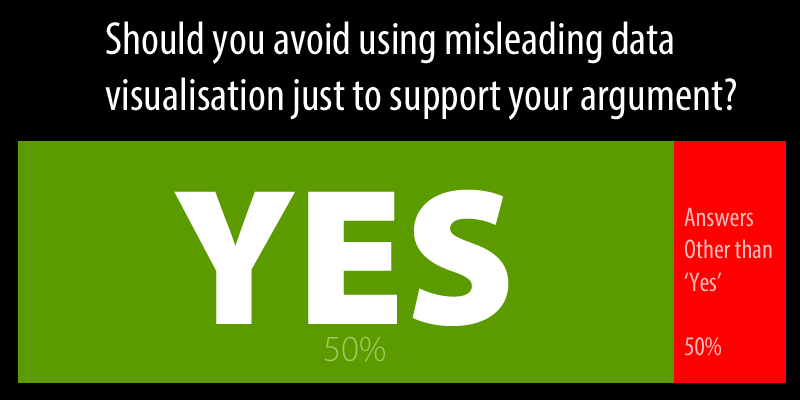Christian Heilmann: Be a great presenter: deliver on and off-stage |
As a presenter at a conference, your job is to educate, entertain and explain. This means that the few minutes on stage are the most stressful, but should also be only a small part of your overall work.
A great technical presentation needs a few things:
- Research – make sure your information is up-to-date and don’t sell things that don’t work as working
- Sensible demonstrations – by all means show what some code does before you talk about it. Make sure your demo is clean and sensible and easy to understand.
- Engagement materials – images, videos, animations, flowcharts, infographics. Make sure you have the right to use those and you don’t just use them for the sake of using them.
- Handover materials – where should people go after your talk to learn more and get their hands dirty?
- An appropriate slide deck – your slides are wall-paper for your presentation. Make them supportive of your talk and informative enough. Your slides don’t have to make sense without your presentation, but they should also not be distracting. Consider each slide an emphasis of what you are telling people.
- A good narration – it is not enough to show cool technical things. Tell a story, what are the main points you want to make, why should people remember your talk?
- An engaging presentation – own the stage, own the talk, focus the audience on you.
All of this needs a lot of work, collecting on the web, converting, coding, rehearsing and learning to become better at conveying information. All of it results in materials you use in your talk, but may also not get to use whilst they are very valuable.
It is not about you, it is about what you deliver
A great presenter could carry a talking slot just with presence and the right stage manner. Most technical presentations should be more. They should leave the audience with a “oh wow, I want to try this and I feel confident that I can do this now” feeling. It is very easy to come across as “awesome” and show great things but leave the audience frustrated and confused just after they’ve been delighted by the cool things you are able to do.
Small audience, huge viewer numbers
Great stuff happens at conferences, great demos are being shown, great solutions explained and explanations given. The problem is that all of this only applies to a small audience, and those on the outside lack context.
This is why a lot of times parts of your presentation might get quoted out of context and demos you showed to make a point get presented as endorsed by you missing the original point.
In essence: conferences are cliquey by design. That’s OK, after all people pay to go to be part of that select group and deserve to get the best out of it. You managed to score a ticket – you get to be the first to hear and the first to talk about it with the others there.
It gets frustrating when parts of the conference get disseminated over social media. Many tweets talking about the “most amazing talk ever” or “I can’t believe the cool thing $x just showed” are not only noise to the outside world, they also can make people feel bad about missing out.
This gets exacerbated when you release your slides and they don’t make any sense, as they lack notes. Why should I get excited about 50MB of animated GIFs, memes and hints of awesome stuff? Don’t make me feel bad – I already feel I am missing out as I got no ticket or couldn’t travel to the amazing conference.

If you release your talk materials, make them count. These are for people on the outside. Whilst everybody at an event will ask about the slides, the number of people really looking at them afterwards is much smaller than the ones who couldn’t go to see you live.
Waiting for recordings is frustrating
The boilerplate answer to people feeling bad about not getting what the whole twitter hype is about is “Oh, the videos will be released, just wait till you see that”. The issue with that is that in many cases the video production takes time and there is a few weeks up to months delay between the conference and the video being available. Which is OK, good video production is hard work. It does, however water down the argument that the outside world will get the hot cool information. By the time the video of the amazing talk right now is out we’re already talking about another unmissable talk happening at another conference.
Having a video recording of a talk is the best possible way to give an idea of how great the presentation was. It also expects a lot of dedication of the viewer. I watch presentation videos in my downtime – on trains, in the gym and so on. I’ve done this for a while but right now I find so much being released that it becomes impossible to catch up. I just deleted 20 talks from my iPod unwatched as their due-date has passed: the cool thing the presenter talked about is already outdated. This seems a waste, both for the presenter and the conference organiser who spent a lot of time and money on getting the video out.
Asynchronous presenting using multiple channels
Here’s something I try to do and I wished more presenters did: as a great presenter should be aware that you might involuntarily cause discontent and frustration outside the conference. People talk about the cool stuff you did without knowing what you did.
Instead of only delivering the talk, publish a technical post covering the same topic you talked about. Prepare the post using the materials you collected in preparation of your talk. If you want to, add the slides of your talk to the post. Release this post on the day of your conference talk using the hashtag of the conference and explaining where and when the talk happens and everybody wins:
- People not at the conference get the gist of what you said instead of just soundbites they may quote out of context
- You validate the message of your talk – a few times I re-wrote my slides after really trying to use the technology I wanted to promote
- You get the engagement from people following the hashtag of the conference and give them something more than just a hint of what’s to come
- You support the conference organisers by drumming up interest with real technical information
- The up-to-date materials you prepared get heard web-wide when you talk about them, not later when the video is available
- You re-use all the materials that might not have made it into your talk
- Even when you fail to deliver an amazing talk, you managed to deliver a lot of value to people in and out of the conference
For extra bonus points, write a post right after the event explaining how it went and what other parts about the conference you liked. That way you give back to the organisers and you show people who went there that you were just another geek excited to be there. Who knows, maybe your materials and your enthusiasm might be the kick some people need to start proposing talks themselves.
http://christianheilmann.com/2014/06/05/be-a-great-presenter-deliver-on-and-off-stage/
| Комментировать | « Пред. запись — К дневнику — След. запись » | Страницы: [1] [Новые] |







